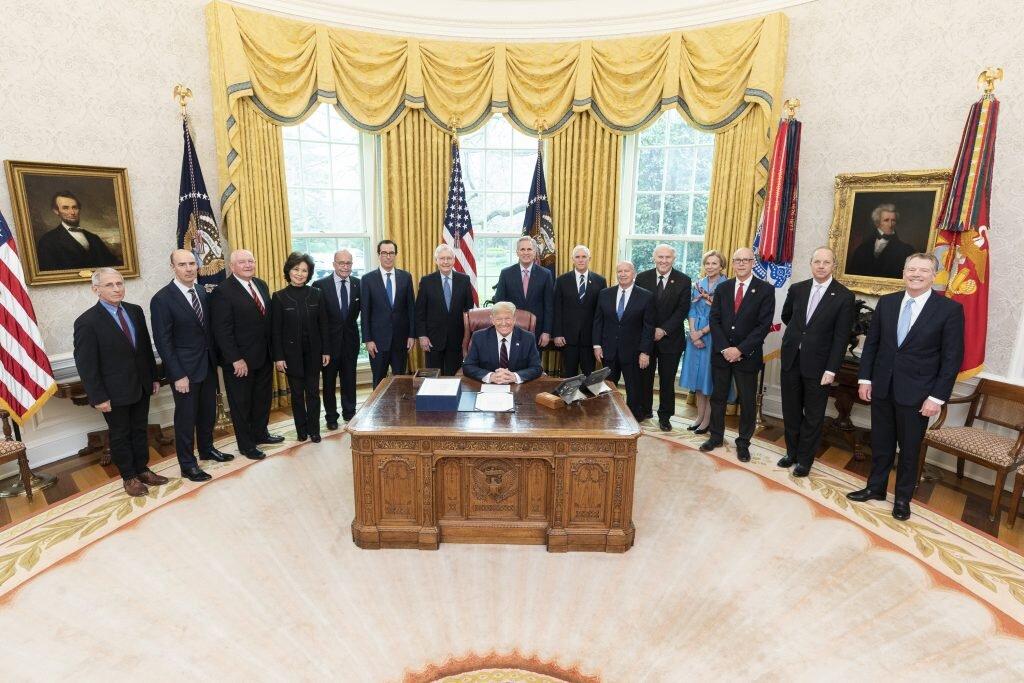Congress is set to bail out corporations that have avoided taxes and safety regulations with a $500 billion aid package. Airlines, hotels, cruise lines, coal mining companies and others that are tangled up in the coronavirus shutdowns are in line to receive aid packages, all included in a $2 trillion bill funded by taxpayers.
Many of these companies operated in ways before the current economic crisis that caused their current predicament, yet taxpayers are being asked to pay the price.
The bill includes the appointment of a new special inspector general to oversee the disbursement of funds as well as to ensure that the companies qualify. The legislation would also create a five person oversight panel that would monitor whether companies that received the bailout money were living up to the obligations of the bill to retain workers and limit executive pay.
Treasury loans and investments would be prohibited from going to businesses controlled by the President, Vice President and members of Congress, but President Trump will be able to benefit from tax breaks given to real-estate developers.
The steps taken by lawmakers are similar to those put in place for the Troubled Asset Relief Program (TARP) during the 2008 financial crisis. Critics argue that if federal money is quickly thrown into the economy in the midst of a fast-moving public health crisis, there is a high opportunity for fraud to occur.
As of now, Congress has debated the details of the bailout and lawmakers are still figuring out how the money would be used to help other American corporate giants. These funds come only two years after the tax reform that benefited big business and following the financial and automobile industry bailouts during the Great Recession.
The options as presented by the legislators are to bail out some corporations or have them put more people out of work. Unemployment is expected to reach as high as 32 percent this year.
Cruise lines are facing potential cash shortages, but they are residing in the area of Panama to avoid almost all U.S. taxes and safety regulations. Health officials say cruise operators should’ve done more to stop the transmission of the virus among passengers and crew members.
Coal mining companies have also asked for help and requested that the government revoke a $220 million tax increase designed to support 25,700 disabled coal miners. The industry employs around 51,000 miners and they represent more than half of the working population in some counties. These companies have been repeatedly sued for putting their workers in harm’s way, yet they are asking to get out of a tax that generates revenue to compensate former miners who have black lung disease.
Boeing, the aerospace manufacturer, is accused of misleading pilots and federal safety inspectors about lapses that caused two of its 737 jets to crash. They are set to receive a $17 billion loan as part of a program for businesses that are considered “critical to maintaining national security.” Boeing spent $43 billion on stock buybacks in recent years.
Out of all the industries, airlines are receiving a large share of the money because of their fundamental role in the economy. $75 billion is designated for the airlines while the rest will be used to support Federal Reserve programs. The International Air Transport Association reports that airlines are bracing for an estimated $113 billion of losses because only half of the airlines are able to operate their regular routes.
American Airlines spent $13 billion on buybacks in the past decade while at the same time they are investing their money on capital improvements such as planes and increased wages/benefits for employees.
According to the Washington Post, the hotel giant Hilton announced a $2 billion stock buyback on March 3, just a couple weeks after coronavirus cases started to affect the industry.
President Trump said, “I don’t want to give a bailout to a company and then have somebody go out and use that money to buy back stock in the company and raise the price and then get a bonus. So I may be Republican, but I don’t like that. I want them to use the money for the workers.”





![[Both photos courtesy of sonoma.edu]
Ming-Ting Mike Lee stepped in as the new SSU president following Sakakis resignation in July 2022](https://sonomastatestar.com/wp-content/uploads/2024/04/CC4520AB-22A7-41B2-9F6F-2A2D5F76A28C-1200x1200.jpeg)


























